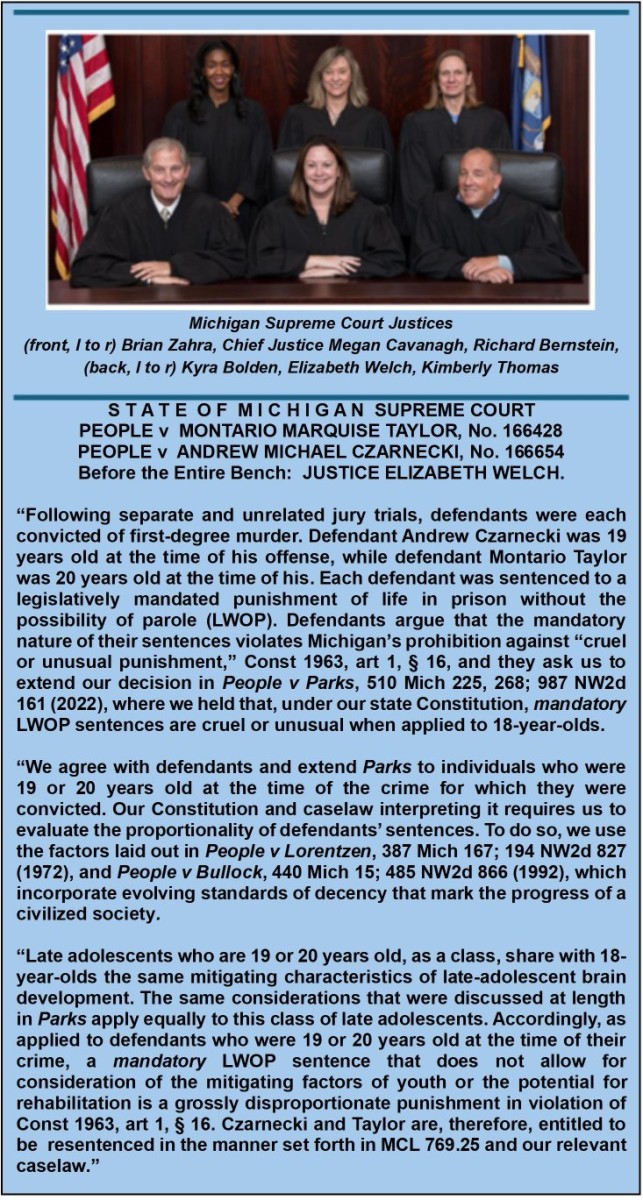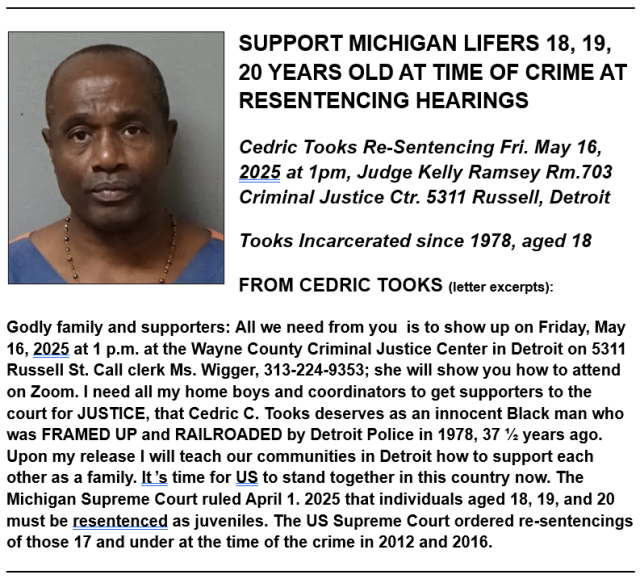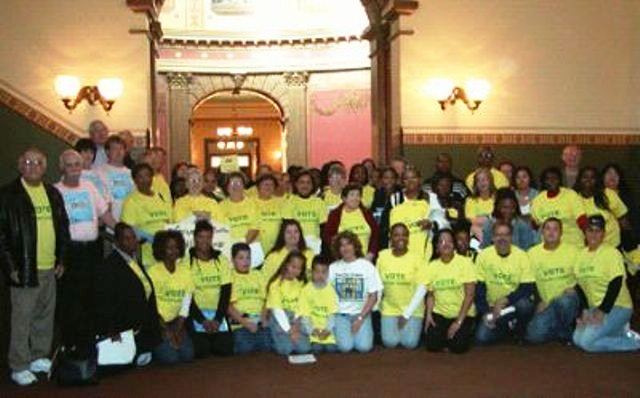

FAMILIES AND VICTIMS of Michigan’s juvenile lifers packed the State Capitol in 2006 to lobby for legislation to outlaw juvenile life without parole. Michigan Citizen

VOD Editor Diane Bukowski
 Writing for The Voice of Detroit on-line newspaper, published since 2010, and the Michigan Citizen, a Black-owned print weekly, from 2000-2010, Diane Bukowski has covered battles for Michigan’s juvenile lifers at length and in-depth in hundreds of stories. Those battles began with Michigan’s Second Chance Coalition of juvenile lifer families and victims waged in the first decade of this century, from 2000 to 2010 (photo above).
Writing for The Voice of Detroit on-line newspaper, published since 2010, and the Michigan Citizen, a Black-owned print weekly, from 2000-2010, Diane Bukowski has covered battles for Michigan’s juvenile lifers at length and in-depth in hundreds of stories. Those battles began with Michigan’s Second Chance Coalition of juvenile lifer families and victims waged in the first decade of this century, from 2000 to 2010 (photo above).
 They continued to national victory after the U.S. Supreme Court declared mandatory juvenile life without parole unconstitutional in Miller/Jackson v. Alabama (2012) and Montgomery v. Louisiana (2016), which made Miller retroactive in the face of virulent opposition by many state prosecutors.
They continued to national victory after the U.S. Supreme Court declared mandatory juvenile life without parole unconstitutional in Miller/Jackson v. Alabama (2012) and Montgomery v. Louisiana (2016), which made Miller retroactive in the face of virulent opposition by many state prosecutors.
VOD wholeheartedly applauds the Michigan Supreme Court’s rulings in PEOPLE OF MI V JOHN ANTONIO POOLE, handed down April 1, 2o25, and PEOPLE OF MI V MONTARIO MARQUISE TAYLOR/ANDREW CZARNECKI.
 They are proof that the battle for the most oppressed, including people of color, youth, and especially those who have been consigned to die in our prisons, continues in Michigan, despite the climate created by our fascist, racist President Donald Trump.
They are proof that the battle for the most oppressed, including people of color, youth, and especially those who have been consigned to die in our prisons, continues in Michigan, despite the climate created by our fascist, racist President Donald Trump.
Recent articles in the local media, including the Detroit News, have sought to create alarm about the prospect of the release of 830 people who have been languishing in prison, many for decades, since their youth. The real alarm should issue about the ongoing policies of mass incarceration, resulting in thousands of wrongful convictions
Links to People v. Poole, issued April 1, 2025, and People v.Taylor/Czarnecki, issued April 10, 2025, are below.
http://voiceofdetroit.net/wp-content/uploads/MSC-People-v-Poole-2025-166813-1.pdf
http://voiceofdetroit.net/wp-content/uploads/MSC-People-v-Taylor-Czarnecki-166428_133_01-2025.pdf
Put “Juvenile lifers” in VOD’s search engine at the top of this page to bring up the full array of stories VOD has published on the issue.
____________________________________________________________
Below, VOD is republishing articles from Michigan Public Radio on the historic rulings affecting lifers who were 18, 19, and 20 at time of sentencing.
Michigan Supreme Court orders resentencing hearings for 18 yr. old lifers
The unanimous 6-0 decision expands an earlier ruling that lifers convicted of first degree- or felony murder when they were younger than 18 are entitled to resentencing hearings. (Justice Kimberly Thomas recused herself from the case because she was involved in it before joining the Supreme Court in January.) The same will now apply to 18-year-olds.
“And at that resentencing, they’ll have the opportunity to demonstrate to the circuit court that they are rehabilitated and capable of rejoining society,” said attorney Maya Menlo with the State Appellate Defender Office says life without parole remains an option.
“Life without the possibility of parole is still on the table,” she told Michigan Public Radio. “The prosecuting attorneys in each county will review the cases and will decide whether they want to pursue a sentence of life without parole, but we expect that that sentence will be extremely rare.”
Special Assistant Wayne County Prosecutor Timothy Baughman said now prosecutors have to make some decisions on these cases.
“Prosecutors are going to have to look at them and determine, are we just going to accede to a resentencing to a term of years or is this one of the cases that we want to have a hearing on and argue that the defendant should still get life without parole? So there’s a lot of decisions that are going to have to be made by prosecutors,” he said.
The defendant is John Antonio Poole, who was 18 years old in 2002 when his uncle paid him $300 to shoot a man because his girlfriend owed him money. Poole is now 42 and being held at the Richard A. Handlon Correctional Facility in Ionia.
In a related case, the state Supreme Court will rule soon on whether to expand the ruling to include lifers sentenced for crimes committed as 19- and 20-year-olds. ___________________________________________________________________________





 VOICE OF DETROIT is a pro bono newspaper, which now returns to its current stories about those who are suffering in 0ur PRISON NATION and POLICE STATE.
VOICE OF DETROIT is a pro bono newspaper, which now returns to its current stories about those who are suffering in 0ur PRISON NATION and POLICE STATE. 


